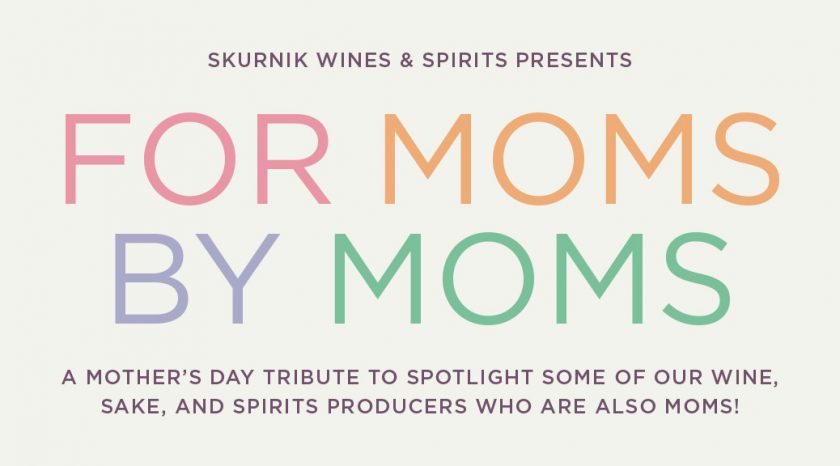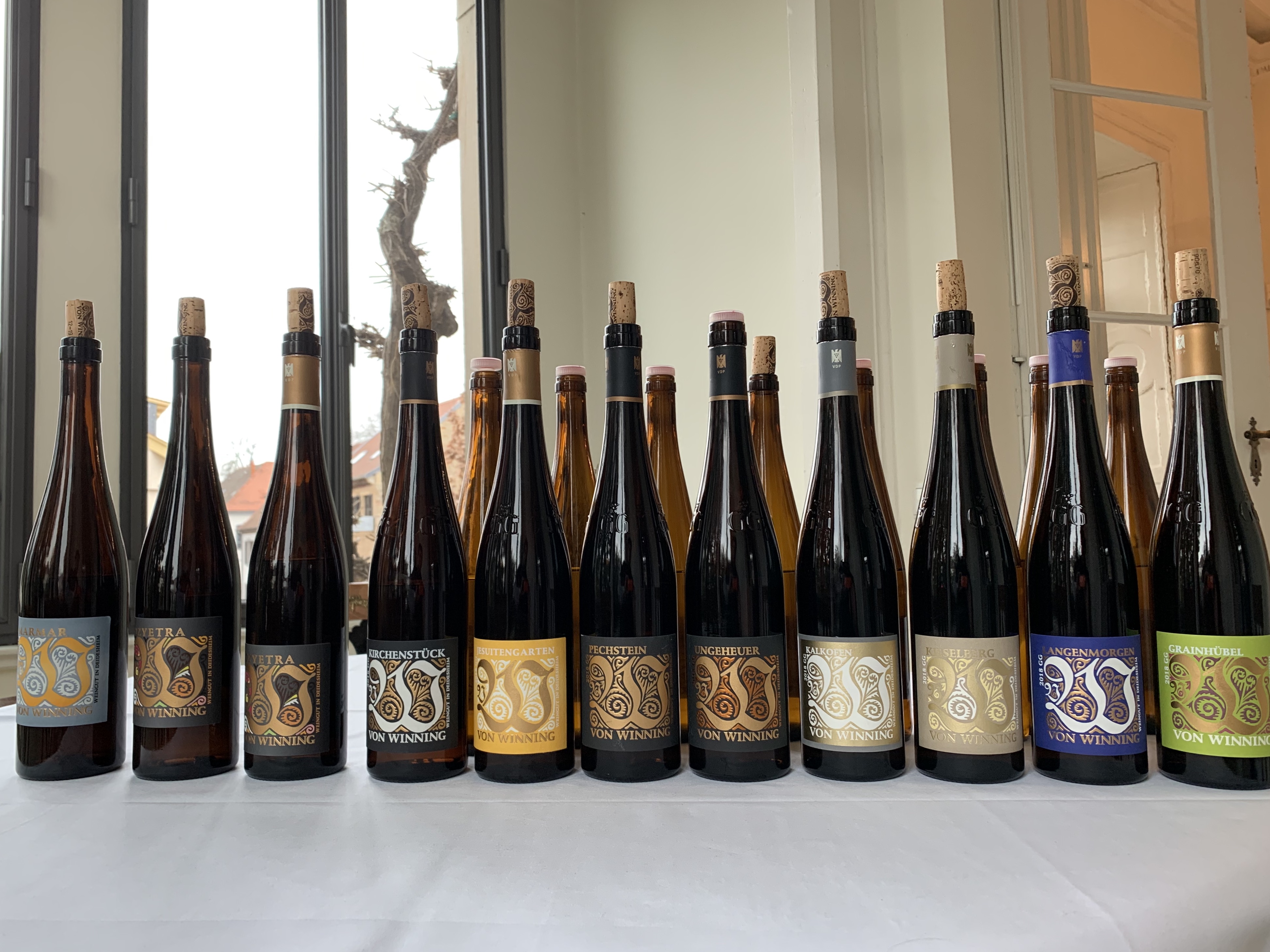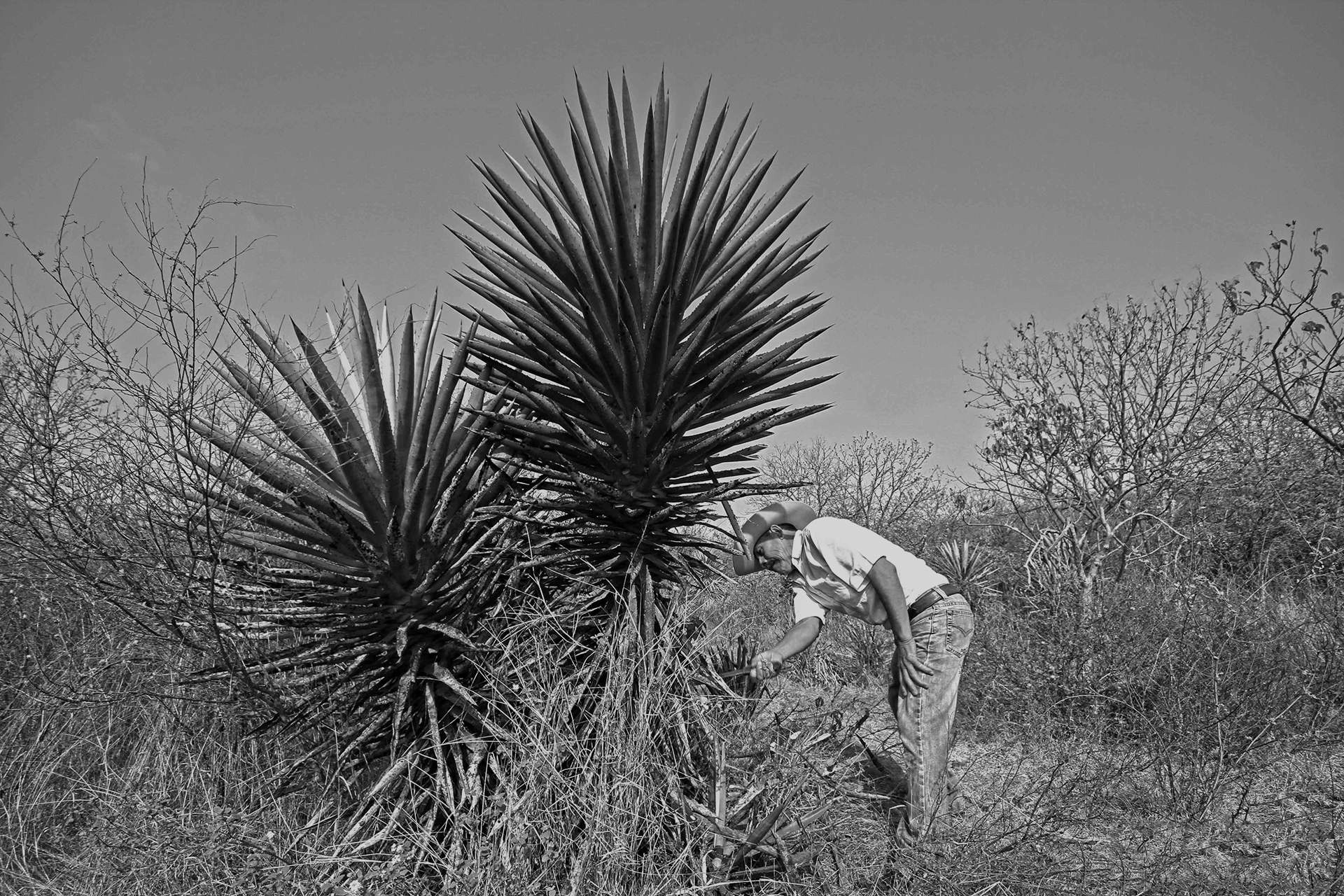While we do our best to celebrate the ones we love all year round, Mother’s Day remains a most treasured occasion to show appreciation to the maternal figures in our lives – our moms, our grandmothers, our stepmothers, our aunts, our cousins, our siblings, our guardians, our neighbors, our friends. Celebrating this holiday will be looking different this year for most of us, but near or far, now more than ever we appreciate the love and support that the caregivers in our lives share with us, and all of the hats that they wear in our homes, in our communities, and in all that they do.
We salute these sources of care and encouragement in our lives. We are inspired by all that they do, and today shine a spotlight on some of our producers that in addition to being recognized all over the world as incredible creators of wine, sake and spirits, are also known as moms. These selections are a few of our favorite highlights of the work that they do.
CHAMPAGNE BRUT, PAUL LAURENT
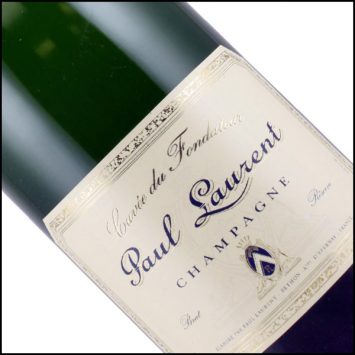
Sarah Larue runs this Champagne estate that dates to 1952, when Gilbert Gruet founded Champagne Gruet in the Val de Marne. In 1987, Gilbert decided to try something completely new and started a winery in America – where he eventually founded Gruet Winery in New Mexico.
His Champagne roots never left him though, and in 1993 he returned to the Val de Marne to make wine under the Paul Laurent name. Since then, Sarah has been leading the charge in continuing the domaine’s legacy of making balanced, mineral-driven Champagne
- 62% Pinot Noir, 28% Meunier, 10% Chardonnay
- Made from vines in the village of Bethon, just south of Epernay
- Fermented and aged in stainless steel
- Aged on the lees for 21 months
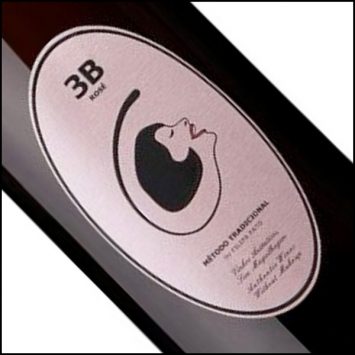
Passion for the traditional indigenous grape varieties of Bairrada led Filipa Pato to start her own project in 2001. She works a total of twelve hectares of vineyards scattered in various plots throughout the Bairrada appellation of Portugal.
Utilizing biodynamic farming practices and minimal-intervention winemaking, Filipa produces vinhos autênticos sem maquilagem – ‘Authentic Wines Without Makeup.’
- Traditional-method sparkling blend of red Baga and white Bical from Bairrada in Portugal– hence the ‘3B.’
- Primary fermentation with indigenous yeasts
- Base wine is unfined and unfiltered
- Secondary fermentation via traditional method in bottle followed by nine months’ aging sur lies before disgorgement. No dosage.
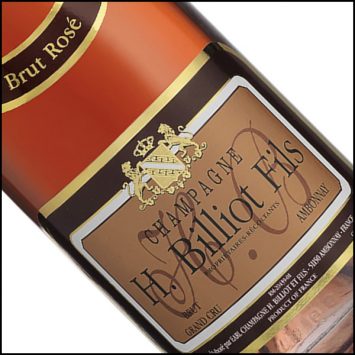
Laetitia Billiot took over her family’s estate in 2015. Farming just five hectares all in the Grand Cru of Ambonnay, Laetitia’s wines emphasize the bright, sunny character of this great village while maintaining depth and elegance.
Her rosé is one of our favorites, always red-fruited and plush with aromas of strawberries, a wonderful wine to pair with food or to drink on its own, this is about pure pleasure.
- 80% Pinot Noir, 20% Chardonnay
- All from Ambonnay Grand Cru
- Mostly from the 2016 vintage, with 20% 2015, 20% 2014 and 10% still Pinot Noir from 2016
- No malolactic to preserve the fresh, bright fruit character
- Raised in stainless steel, with the red wine aged in neutral oak
- 36 months on the lees
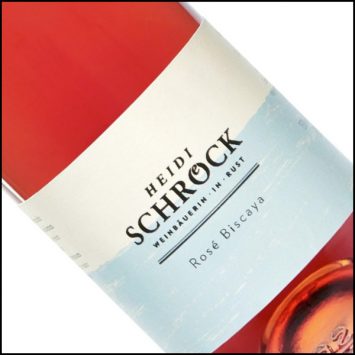
Heidi Schröck took over this small family domaine in Rust in 1983 and in her time has cemented it as one of the top wineries in Burgenland. Joined now by her twin sons as of 2019, the Schröck family is producing truly unique wines from both Austrian classics and international varieties.
The Rosé Biscaya is a wild blend of nine different grapes. Heidi calls it her “tour of European vineyards” as the blend includes grapes indigenous to Northern Italy, Burgundy, Bordeaux, the Rhône Valley, and, of course, Burgenland.
A much deeper and more structured style of rosé, named “Biscaya” for its resemblance to the color of lobster bisque, it is a rosé for those who want a bit more power and intensity than a traditional provençal style. Savory, spicy, and bursting with berries, wildflowers, and herbs.
- Blend of Lagrein, Teroldego, Petit Verdot, Syrah, Pinot Noir, Merlot, Cabernet Sauvignon, Zweigelt and Blaufränkisch
- From the Ried Ruster vineyard
- Soil is loamy sand with grey quartz and schist
- Fermented in acacia, oak, and stainless steel; racked, blended and left on the lees for 4 months
LINK TO HEIDI’S VIDEO ON MOTHER’S DAY ROSÉ!
LES BAUX DE PROVENCE ROSÉ, MAS DE GOURGONNIER
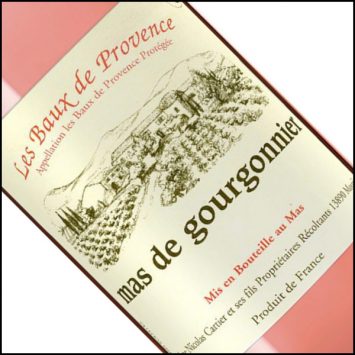
Mas de Gourgonnier is a storied domaine, run with passion and skill by Eve Cartier, that has been organically farming and making wine – along with olives to make their consistently top-rated olive oil – for decades.
This gorgeous property, tucked into the beautiful rugged terrain of Les Baux-de-Provence produces a remarkably fresh, floral, and juicy rose that has been a favorite of wine enthusiasts and critics for many years.
- Certified organic
- 44% Syrah, 26% Grenache, 15% Cabernet Sauvignon, 15% Carignan
- Vines in the shadow of Les Alpilles – a beautiful limestone range with peaks reaching 500 meters
- Indigenous yeasts
- Aged in a combination of tank and large older barrels
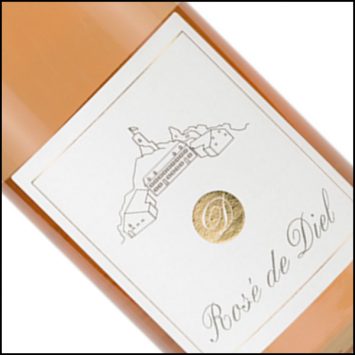
In 2006, after studying winemaking at Geisenheim (the top enology school in Germany) and staging at top estates around the world, including Domaine de la Romanée-Conti, Caroline Diel returned home to the family Domaine in Burg Layen to take over the estate.
As of 2012, she is the sole proprietor and winemaker of Schlossgut Diel in the Nahe. While Caroline produces stunning Rieslings, her Rosé de Diel is a cult favorite with expressive aromas of wild strawberry and raspberry, a spicy finish, and enduring elegance.
- 100% Spätburgunder
- From the Dorsheim and Burg Layen vineyards
- Slate, gravel and loam soils
- Stainless steel with a portion in aged neutral oak, a mix of large fuder.
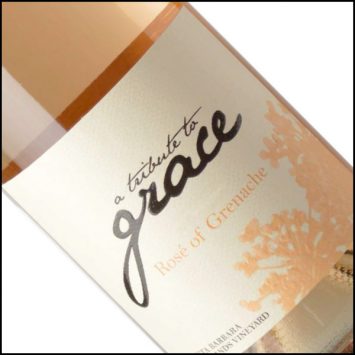
A Tribute to Grace was founded in 2007 by Angela Osborne, who fell in love with Grenache. Her original focus in winemaking was in Santa Barbara which she selected in particular for its climatic similarity to New Zealand, her homeland, where she still consults.
The winery is named for Angela’s grandmother, and produces wines that are ethereal and sheer, allowing the land to shine through the nuanced flavors. Grace wines are made from sustainably-farmed grapes with an eye towards biodynamics.
- 100% Santa Barbara Highlands Vineyard
- 100% Grenache
- 50% clusters are destemmed and gently pressed whereas the other 50% are foot-tread
- 5 months elevage with native yeasts in stainless steel
- Total production 913 cases.
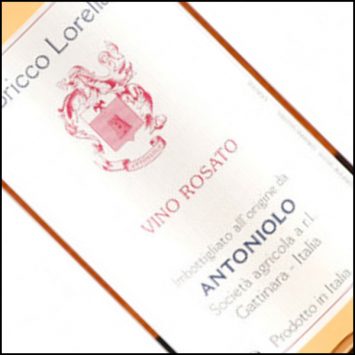
Rosanna Antoniolo is without question one of the pioneers of Alto Piemonte and the quality level of her wines consistently impresses year after year.
This rosé hails from the iron-rich soils in the Coste della Sessia about an hour’s drive north of Barolo Named after the current proprietor, Lorella.
- A blend of 90% Nebbiolo and 10% Bonarda and Vespolina
- 3-hour skin maceration
- Fermentation over 21 days
- 3 months on the lees
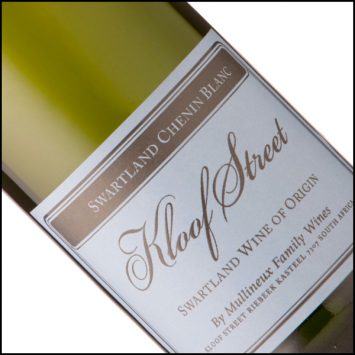
Envisioned as an entry point to the Swartland, California-born winemaker Andrea Mullineux and her viticulturalist husband Chris’s Kloof Street label focuses on Chenin Blanc and Rhône red varieties.
The Mullineux family devotes the same level of attention to these sustainably farmed values as their single vineyard and single terroir expressions that have won them considerable praise for the last decade both inside and outside South Africa.
- 100% Chenin Blanc from three sustainably farmed vineyard sites
- Majority of wine is fermented in stainless, while 15% sees barrel
- Hand-picked and fermented with native yeasts
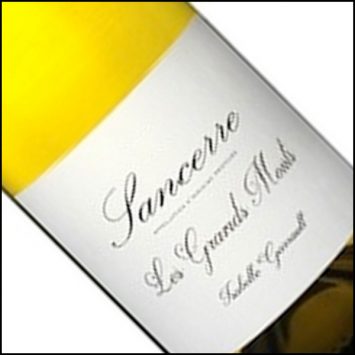
Isabelle Garrault is the 10th generation of her family to grow grapes and make wine in Sancerre. Based in the small hamlet of Verdigny, their parcels are all found in the picturesque hillside slopes that allow the grapes to soak up the shy Loire Valley sun.
The wines from these beautiful vineyards have the laser-intense minerality that is getting harder and harder to find in Sancerre. It is farmers like Isabelle who simply continue to make wine in the traditional way that reminds us why we fell in love with this hilly region to begin with.
- From vines in the village of Verdigny
- 100% Sauvignon Blanc
- 40+-year-old vines
- Grown on terres blanches and caillotes
- Indigenous yeast
- Fermented and aged in tank
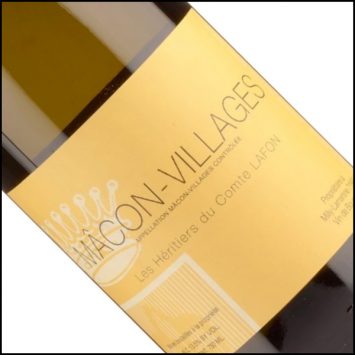
Founded in 1999 by Burgundy legend Dominique Lafon (of Domaine des Comtes Lafon in Meursault), which he now runs alongside his longtime winemaker Caroline Gon, Les Héritiers du Comte Lafon is a trailblazing biodynamic Mâconnais domaine.
Their belief and passion for this slice of Burgundy (perhaps the most picturesque wine region in France) has made Héritiers du Comte Lafon a towering beacon for world-class Chardonnay.
- Certified biodynamic
- 100% Chardonnay
- 30+-year-old vines
- Multi-parcel blend
- 250m altitude
- Deep clay on limestone
- Indigenous yeast
- Aged in large 45hl barrels
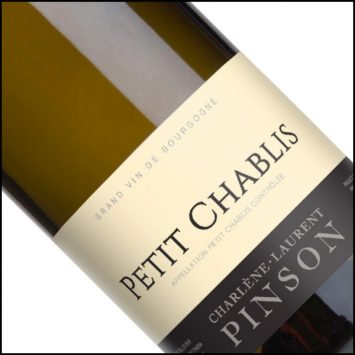
Domaine Pinson is one of the oldest estates in Chablis, with records showing the family in the region since 1640. The domaine today is run by the dynamic Charlène Pinson, who in recent years has been recognized as one of the top growers in this historic village. It’s easy to see why, as this Petit Chablis shimmers with soaring minerality and vivacity, making it a perfect and refreshing Chardonnay for all times of the year.
- 35+-year-old vines
- 100% Chardonnay
- Eastern exposure
- From vines above Grand Cru Les Clos
- Very rocky Portlandian terroir
- Indigenous yeast
- Fermented and aged in tank
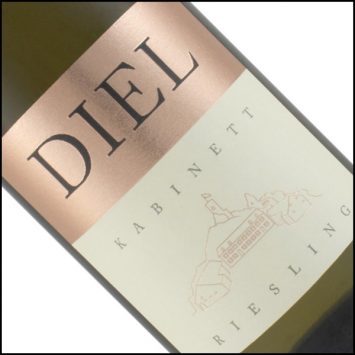
While Caroline Diel’s Grosses Gewachs wines are coveted by collectors all over, she still puts the same intention and focus on her Kabinetts. Sourced from Johannisberg and Doresheim, the wine is spontaneously fermented in stainless steel, showing a thirst-quenching balance of fruit and acidity.
Caroline likes wines that she calls “drinky” and the Diel Kabinett is exactly that.
- 100% Riesling
- Slate, gravel, & sandstone soil
- Spontaneously fermented and matured in stainless steel
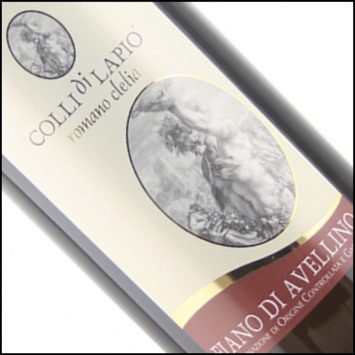
A practicing-organic estate around the Lapio village, northeast of Avellino, considered the “grand cru” growing area for the white variety Fiano with the potential to evolve over a decade into a golden-hued and mineral wine that echoes the qualities of Grand Cru Chablis.
- 100% Fiano
- Calcareous clay soils with southern exposure
- Fermentation in stainless steel maturation in steel tanks for 6-8 months, 4-6 of which are on the lees
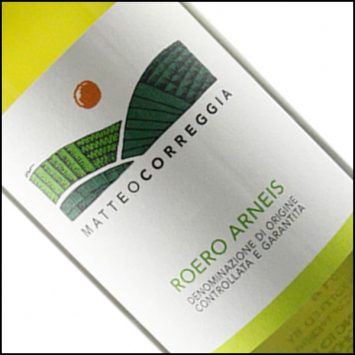
Corregia is located in the Roero, in the lower-altitude, rounded, sandy hills north of the Tanaro River and northwest of the Langhe. Young Nebbiolo and Barbera from this region have a particularly fresh and lively character.
- 100% Arneis
- Planted in silty clay soils at 280-330 meters above sea level
- Lightly pressed, then temperature-controlled fermentation with protection from oxygen
- Aged in steel vats with lees contact for 6 months
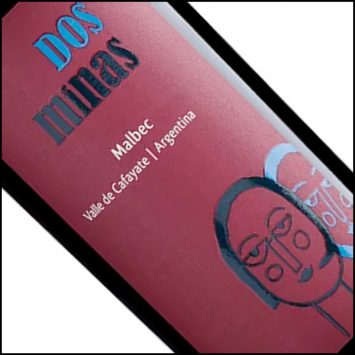
As ‘minas‘ is colloquial Argentine slang which affectionately refers to females of any age, Lucía Romero and Heather Willens thought it to be fitting name for a project that they created to symbolize the sun-soaked desert climate that Lucía was raised in.
The Argentine ‘mina’ Lucía is the director of her family winery located in that area and Heather Willens is the Californian ‘mina’ who has worked for many years in the wine industry.
- 100% Malbec from young vines in Cafayate
- High elevation vineyards at 1,700 meters elevation
- Hand-harvested
- Aged in a combination of stainless steel and neutral oak
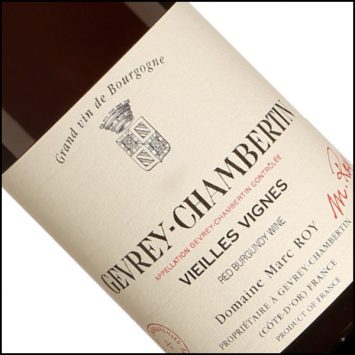
Alexandrine Roy is the 4th generation of the Roy family to farm her holdings, practically single-handedly, in Gevrey-Chambertin. This is a tiny domaine of just 8 acres that is meticulously cared for as if it was Alexandrine’s personal garden.
The resulting wines from these delicately cared for plots show a lovely purity and elegance that have garnered the domaine praise from around the world. Burgundy rarely is as pristine, or downright delicious, as with the extraordinary wines of Alexandrine Roy.
- 100% Pinot Noir
- 80+-year-old vines
- Blend of Gevrey’s finest lieux-dits
- Combines the plush richness of the lower sites of the village with the licorice and spice of the noble mid-slope of Gevrey-Chambertin
- Destemmed
- Indigenous yeast
- Aged in barrel (50% new)
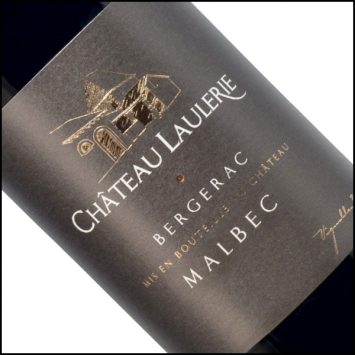
Marine Dubard is the proprietor of this humble château, found in the rolling hills of Bergerac in the southwest of France. Being just east of Bordeaux, this area has long been overshadowed by its more famous neighbor, but in recent years has become an insider secret for being the home of exceptional Bordeaux-esque wines at great values.
The Malbec from this estate is a classic example of this noble variety, with an incredibly silky texture to go along with the blackberry and mocha flavors.
- HEV-certified sustainable
- 100% Malbec
- Clay-limestone soil
- Indigenous yeast
- Aged in stainless steel
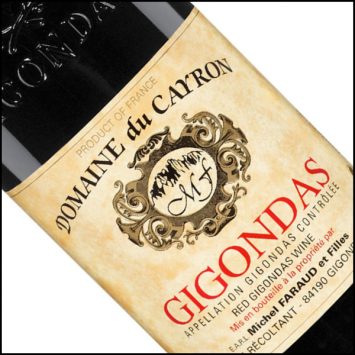
Domaine du Cayron is run by three powerhouse sisters: Delphine, Cendrine and Roseline Faraud. Considered by many to be the benchmark producer in Gigondas, this property produces a single wine of phenomenal richness and incredible longevity.
You’d be hard-pressed to find a more terroir-expressive wine anywhere in the Southern Rhône; bold and powerful, with evocative garrigues flavors that careen from the glass, blaring their stamp of origin like a neon sign.
- 78% Grenache, 14% Syrah, 7% Cinsault, 1% Mourvèdre
- Grown on clay-limestone with southeast exposure
- Indigenous yeast
- Aged in large older barrels
- Unfined and unfiltered
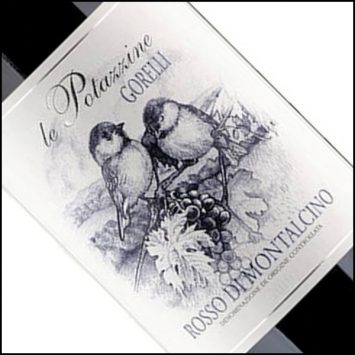
Le Potazzine was the nickname proprietor Gigliola Gianetti’s mother had given her two delightful granddaughters, local dialect for a songbird noted for its beauty and happiness.
The wines were always laser pure expressions of Montalcino terroir with an appealing elegance, and they remain so today. Both “Potazzine” now work with their mother at the estate, guaranteeing the continuity of a future generation.
- 100% Sangiovese
- Organically farmed
- From two vineyards in Montalcino: ‘Le Prata’ close to the town of Montalcino with a southeastern exposure at 500 meters above sea level; and ‘La Torre’ in Sant’Angelo in Colle with a southwestern exposure at 420 meters above sea level
- Fermentation and maceration takes place over 30 days
- Matures for 10 months in large oak cask before finishing in the bottle for 6 months prior to release.
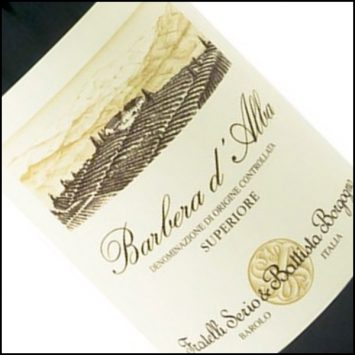
The Borgogno estate is perched atop the hill of Cannubi, the grandest of grand cru Barolo, held in the same esteem as any Grand Cru Pinot Noir vineyard in Burgundy. The majesty of Cannubi lies in its lifted, floral aromatics with a palate characterized by elegance and approachable structure. The estate has been in the family since its beginning, with fourth-generation sisters Anna and Paola Borgogno now handing the reins over to daughters Emanuela and Federica.
- 100% Barbera
- Sandy marl and clay soils of Castellinaldo (Roero), Vergne (Barolo) and Diano d’Alba
- 40+-year-old vines
- Vines grown at 250 meters with a southern exposure
- Aged in 2500-5000 liter Slavonian oak barrels
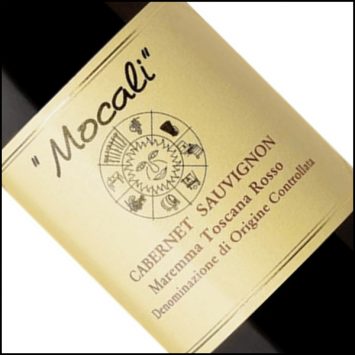
Dino Ciacci, the founder of the Mocali estate, was one of these 25 vignerons who, in 1967, founded the Corsorzio del Vino Brunello di Montalcino. Today, Alessandra and Tiziano farm 20 hectares in Montalcino. Their daughter, Pamela, has recently joined the business, and together they oversee all aspects of production.
Mocali has always followed a traditional style of winemaking, aging their Brunello classico in only large French and Slavonian oak casks, and the wine has found a following far beyond the borders of Italy.
- 100% Cabernet Sauvignon
- From Marl and sandstone soils of Maremma
- Alcoholic and malolactic fermentation in stainless steel tank and aging six months in barriques of 225 liters.
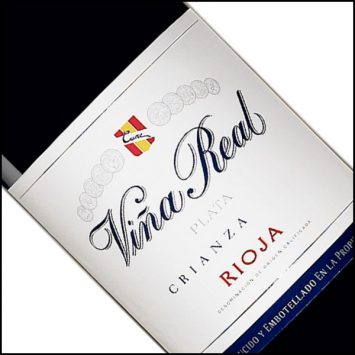
A Tempranillo-based blend crafted by Maria Larrea, this is one of Rioja’s iconic wines. Aged for over a year in French and American barrels.
- 90% Tempranillo with the remainder composed of Graciano, Garnacha and Mazuelo
- Grapes come principally from the “Rioja Alavesa” sub-zone
- South-facing slopes
- Soils are composed mainly of chalk.
- This wine sees 12 months in American oak casks and another two years aging in bottle
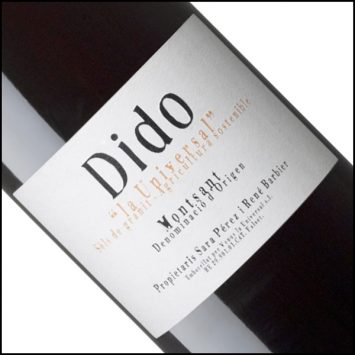
Husband and wife team Sara Pérez and René Barbier (Fils) are the children of two of the great pioneers of the Priorat D.O., Josep Lluis Pérez of Mas Martinet and René Barbier of Clos Mogador.
René and Sara have taken the goddess as their inspiration for this project. One of their stated goals is “to interpret femininity through a bottle of wine.”
- An organic blend of Garnacha and Syrah with a little Merlot and Cabernet
- Grown in various plots ranging from granite to limestone throughout the appellation
- Aged in a variety of neutral vessels.
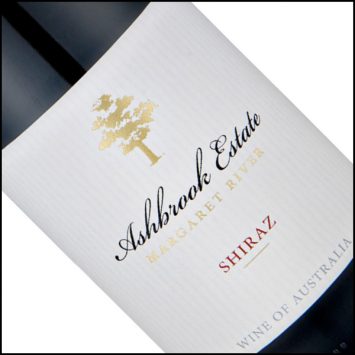
While running Ashbrook Estate remains a multi-generational affair for the Devitt family, in recent years winemaking duties have transitioned to founder Brian Devitt’s daughter, Catherine.
The estate was one of the first wineries established in Margaret River’s now-famous Wilyabrup subregion back in 1975 and she continues her father’s legacy of making expressive, terroir-driven wines that embrace coastal climate of this area of Western Australia.
- 100% Shiraz from estate vineyard sites
- Hand-picked
- Aged 24 months in French oak and another 18 months in bottle
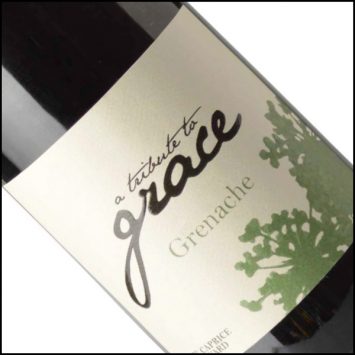
A Tribute to Grace was founded in 2007 by Angela Osborne, who fell in love with Grenache. Her original focus in winemaking was in Santa Barbara which she selected in particular for its climatic similarity to New Zealand, her homeland, where she still consults.
The winery is named for Angela’s grandmother, and produces wines that are ethereal and sheer, allowing the land to shine through the nuanced flavors. Grace wines are made from sustainably-farmed grapes with an eye towards biodynamics.
- Sourced from Santa Barabara Highlands Vineyard, Vie Caprice Vineyard (Santa Ynez)
- Slide Hill Vineyard and Spear Vineyards
- 100% Grenache, 100% destemmed
- 11 months elevage with native yeasts in neutral barrique and puncheon
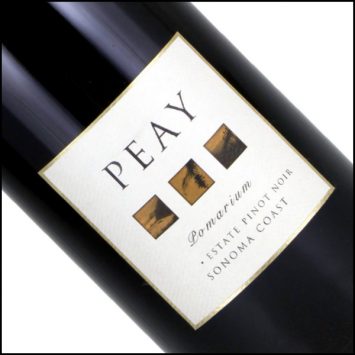
Nick and Andy Peay founded the vineyard in 1996 and planted 30 of the first 54 acres in 1998. Vanessa Wong (Nick’s wife) came on board as head winemaker in 2002, previously working at Peter Michael Winery.
The Peay family farms organically and blends each cuvée blind. Their estate is a true definition of cool climate meets coastal: they are located just 4 miles from the Pacific Ocean which means the grapes are occasionally picked as late as mid-October. Hello, acid, balance, and structure!
- 100% estate fruit
- Blend of 8 of the 15 Pinot Noir clones grown on the estate
- 2% whole-cluster inclusion
- Aged on the lees for 11 months in 26% new French oak barrels
- Bottled unfined and unfiltered
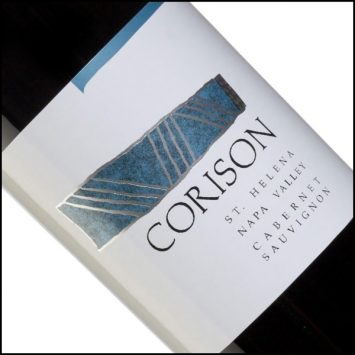
Corison Winery was founded in 1987 with the passion of head winemaker, Cathy Corison, sourcing Cabernet Sauvignon grapes from prime vineyard sites on the benchland between Rutherford and St. Helena. In 1995, with the purchase of Kronos Vineyard, Cathy established a property where her winery would eventually live. Kronos is exclusively planted to St. George rootstock, which is completely resistant to phylloxera, so the vines are over 45 years old.
Cathy has focused on making a specific style of Cabernet Sauvignon, one that wasn’t always “popular” during the height of Robert Parker. However, her dedication to crafting restrained, powerful and elegant shines through. Kronos has been farmed sustainably for more than 20 years, in line with her philosophy of sustainable farming for all of the vineyards she works with.
- 100% Cabernet Sauvignon
- Sourced from 3 St. Helena Vineyards: Sunbasket, Grech & Hayne
- Fermented in stainless steel tanks
- Aged for 20 months in 50% new French oak barrels
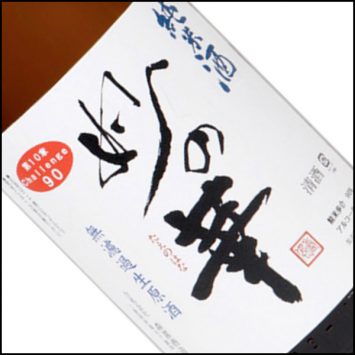
Rumiko Moriki is the 4th generation of her family to run their small sake brewery, and in 1989 quietly became the first female toji brewmaster in the country.
Nearly all work at Moriki Shuzo is done laboriously by hand, including the growing of their own rice using organic methods. She lets the natural environment guide her sake making, allowing it to ferment spontaneously from wild yeasts, and doesn’t adjust the sake after pressing with charcoal or pasteurizing. This creates a sake vibrant with aromas of toasted grains and walnuts, full-bodied with lots of umami, a natural match for the hearty cuisine of their region.
- Organic Yamada Nishiki rice grown by the brewery, milled to 90%
- Fermented with wild yeasts native to the brewery
- First run of sake off the press without applying pressure (arabashiri) keeps out bitter flavors.
- Minimal intervention after pressing: no charcoal filtering (muroka), left unpasteurized (nama) and no added water (genshu) leaves sake vibrant and alive.
- Matures in the bottle, mellowing from tart and bright to deep and nutty.
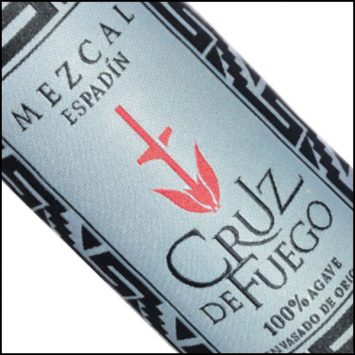
Meet the mother-and-son team of Margarita Blas and Carlos Mendez, founders of Cruz de Fuego. Enriched by generations of experience in both farming and distillation, Margarita, Carlos, and their extended family produce artisanal mezcal made from multiple agave varieties in the town of Santiago Matatlán, Oaxaca.
Cruz de Fuego Espadín exhibits the light sweetness of fresh root vegetables along with notes of stone fruit skin, toasted coconut, and a lingering minerality.
- Espadín agave is cooked for 4 days in conical ovens using Encino and Pine wood
- Milling is done by horse-drawn tahona-wheel
- Open-air fermentation
- Copper pot distillation, twice distilled
- Rested in stainless steel
- 45% ABV




